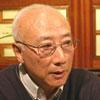The Epoch Times is proud to republish “An Unprecedented Evil Persecution: a Genocide Against Goodness in Humankind” (eds. Dr. Torsten Trey and Theresa Chu. 2016. Clear Insight Publishing). The book helps with the understanding of forced organ harvesting in China by explaining the root cause behind this atrocity: the genocide committed by the Chinese regime against Falun Gong practitioners.
In October 1999, Alain Peyrefitte, Editorial Director of Le Figaro, one of the largest newspapers in France, conducted a written interview with then head of the Chinese Communist Party (CCP), Jiang Zemin, prior to his visit to France. The written interview asked for Jiang’s comments on issues in China, France and other parts of the world.

